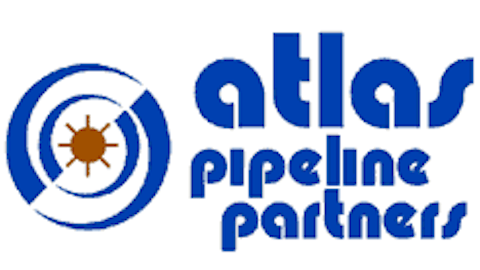Doing business is hard. Mistakes are inevitable. What can investors learn from how a company handles its failures? Does it tell you something if one company reacts to its critics with malicious aggression and suspicion, while another views criticism as an opportunity for improvement? I’m obviously asking rhetorical questions, because I think response to criticism reveals a lot about management quality.
Free Range on persecution
Range Resources Corp. (NYSE:RRC) has taken a shock-and-awe approach to dealing with anyone who questions the safety of its fracking operations. According to an excellent Bloomberg article, Range has sued or intimidated activists, homeowners, and public officials, sometimes for little more than asking questions.

1). A homeowner near a Range’s drilling well was concerned about the methane leaking from his water well: He could light it on fire. When he had his water independently tested and took the results to EPA, Range sued him for defamation.
2). When Range filed drilling applications with Pennsylvania’s Robinson Township, local residents had questions about fracking’s health effects. Range preciously complained that the resultant delay in the approval process violated the company’s due-process rights, and stopped answering questions. Robinson subsequently denied Range’s applications.
3). Range has subpoenaed and issued legal warnings to Calvin Tillman, an activist and former mayor of Dish, Texas, who has questioned the company’s practices. “Range Resources is different from its peers in that it chooses to severely punish its critics,” Tillman said in an interview.
Range should pick on someone its own size. Naturally, the company calls this characterization unfair. Matt Pitzarella, a Range spokesman, offers this mystifying retort: “It’s fair to say that we may take a different approach from others from time to time, but no different than a lot of individuals or businesses. It’s just in a different light given the work we do. We accept that and embrace it.” What does that even mean?
Lucia von Reusner, Shareholder Advocate at Green Century Capital Management, told me that Range is “really undermining itself by not responding to very valid investor concerns.” She offers the following support.
1). In 2011, the SEC sided with Green Century’s investor campaign to push Range and other companies to provide more detailed information about their fracking operations and their impact, agreeing that this is a very real investor concern.
2). The Department of Energy’s Shale Gas Production Subcommittee produced a report (link opens a PDF) finding that “if action is not taken to reduce the environmental impact accompanying the very considerable expansion of shale gas production…there is a real risk of serious environmental consequences causing a loss of public confidence that could delay or stop this activity.”
3). The International Energy Agency, in its 2012 report, “Golden Rules for a Golden Age of Gas,” addressed the energy industry’s need to maintain or earn its social license to operate: “Full transparency, measuring and monitoring of environmental impacts and engagement with local communities are critical to addressing public concerns.”
Not coincidentally, the city of Fort Collins, Colo. – part of the Niobrara Shale – banned fracking this week. Fracking isn’t inherently bad, but if companies don’t get out in front of the social and environmental risks, they will lose.
Chevron Corporation (NYSE:CVX) will crush you
I’m reluctant to start in on Chevron Corporation (NYSE:CVX), because a full accounting of its shenanigans would make James Joyce’s novels look terse. Suffice it to say that, in what analysts call an unprecedented move, the company is suing its own investors for challenging Chevron to improve its environmental management and corporate governance. Chevron has subpoenaed all records related to “Chevron litigations and shareholder actions” concerning a $19 billion judgment against the company in Ecuador for its wanton trashing of the rainforest.
One of the targets of Chevron’s ire is my friend Simon Billenness, an investor consultant who wrote a report (link opens a PDF) criticizing Chevron’s actions. Chevron subpoenaed not only all of Billenness’ documents and emails regarding the Ecuador case but also – astoundingly – the shareholder resolutions that he helped file. Billenness describes Chevron’s behavior as “character assassination to try to silence the legitimate concerns of its own shareholders.”
Burying their heads in the Sand(Ridge)
I recently wrote about how SandRidge Energy Inc. (NYSE:SD)‘s CEO uses his position to profit at shareholders’ expense with the complacent board’s blessing, prompting hedge fund – and SandRidge shareholder – TPG-Axon to launch a campaign to oust the CEO and replace the board of directors.
Institutional Shareholder Services (ISS), a unit of Msci Inc (NYSE:MSCI), has come out in favor of TPG-Axon’s efforts. According to ISS: “The apparent failures of stewardship on this board are legion.” TPG and other critics “have advanced a credible narrative that the company’s abrupt, piecemeal approach to corporate strategy and concomitant lack of capital discipline have increasingly limited the company’s financial flexibility, and engendered a deep distrust in the market.”
SandRidge has gone on the defensive, sending a letter to shareholders asking them to vote against TPG-Axon’s efforts. The letter makes a weak attempt to rebut TPG-Axon’s charges, but fails to do so in any meaningful way. SandRidge continues to waste resources that it could instead deploy to improve shareholder value.
The good guy
Don’t despair. There’s always EOG Resources, Inc. (NYSE:EOG). The company was slated to be a target of a recent series of shareholder resolutions aimed at fracking companies. Von Reusner told me that Green Century – the sponsor – withdrew its resolution after a successful engagement with EOG.
Green Century was originally concerned about EOG’s apparent lack of policies for tracking and responding to community complaints, and for reducing fracking chemical use. EOG responded with a detailed internal process for the former, and provided specific implementation steps and details on the latter. The company aims to make these public within the next few months. Now that’s refreshing.
Additionally, EOG performs at or near the top of its peer group on such management efficiency measures as credit rating, cost of debt, and overhead costs. Coincidence? I think not.
Social license to operate
Paul Bugala, Calvert Investments’ extractives expert, summed this up perfectly. Companies “risk losing their social license to operate if they don’t respect the role local communities and governments must play in decisions that may affect them. Community engagement and governance policies need to grow right along with acreage and reserves. U.S. independent oil and gas developers have to shake the sector’s wildcatter mentality and embrace their responsibilities, or risk losing or delaying leases and other opportunities.”
The article Are Corporate Bullies Bad Investments? originally appeared on Fool.com and is written by Sara E. Murphy.
Sara E. Murphy has no position in any stocks mentioned. Follow her on Twitter at @SMurphSmiles. The Motley Fool recommends Chevron and Range Resources.
Copyright © 1995 – 2013 The Motley Fool, LLC. All rights reserved. The Motley Fool has a disclosure policy.



